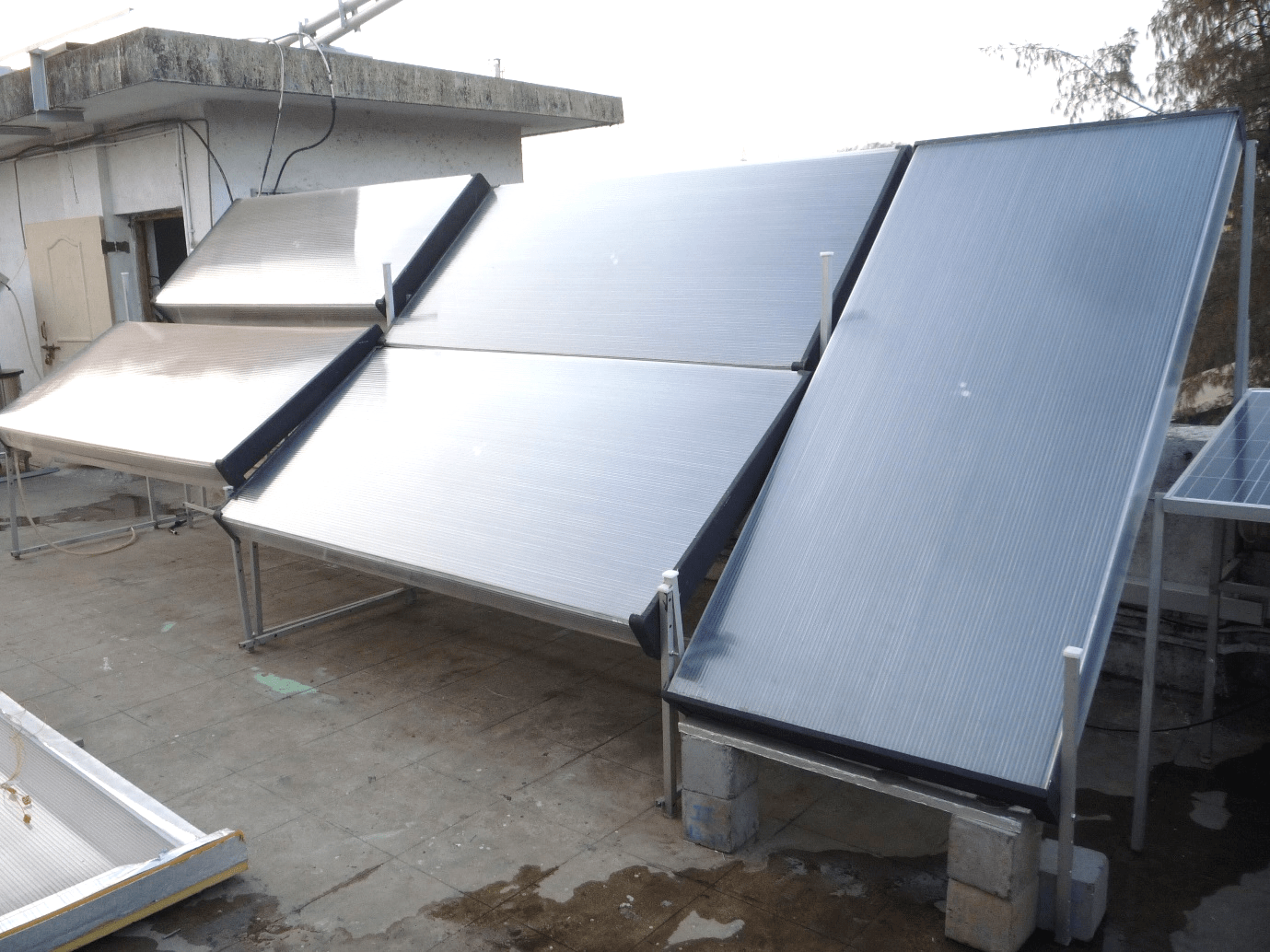This invention utilises advanced materials and design strategies to enhance the efficiency and functionality of solar heating systems. This heater is designed to operate more efficiently than traditional models by minimising heat loss and optimising the transfer of solar energy into usable heat.
Traditional solar air heaters often suffer from significant energy losses due to poor heat transfer and high operational temperatures, which can lead to reduced efficiency and increased operational costs. Also, the high air velocity through the collector cause significant pressure drop, which increases the power required to extract the heat. This invention aims to address these issues by enhancing heat transfer efficiency, reducing air side pressure drop, and minimizing temperature-related heat losses.
- Advanced materials: This innovation uses lightweight, durable materials like polyisocyanurate insulation panels and multi-wall polycarbonate sheets to enhance insulation and reduce overall weight.
- Enhanced heat transfer: It incorporates corrugated or finned tubes to increase the heat transfer surface area, significantly improving heat exchange efficiency.
- Integrated design: It features an integrated fluid inlet and insulation panels that double as structural elements, reducing the need for additional supports and minimising thermal bridging.
The prototype demonstrates a significant improvement in air temperature rise and efficiency compared to traditional solar air heaters. It features a compact, efficient design with reduced weight and enhanced portability, making it suitable for varied installations.
The Solar Air Heater (SAH) technology has been demonstrated and licensed to dry municipal solid waste. These SAHs are demonstrated for space heating applications and agro-produce drying. They enable once-through heating from sub-zero ambient to 45oC. The storage of heat during the day and delivery at night are also demonstrated. They can also be deployed as the roof of the facility.
- Solar air heaters: TRL 9
- Solar air heaters with storage: TRL 7
- Solar air heaters based agro-produce dryers: TRL 6
This invention has the potential to significantly reduce energy costs and carbon footprints in residential, commercial, and industrial settings. By improving the efficiency of solar heating, it promotes wider adoption of renewable energy technologies, contributing to sustainability goals. It can enable raising the earnings of farmers by adding value to the agro-produce by drying. Loss of perishables can be reduced by enabling cost-effective renewable energy-based drying for agro-produce.
- Residential heating: Ideal for home space heating, leveraging solar energy to reduce dependency on conventional heating methods
- Industrial applications: Can be used in industries for processes requiring heated air, such as drying operations in agriculture or chemical processes
- Environmental control: Suitable for use in greenhouses and agricultural settings where temperature control is crucial for plant growth and health
- Army: For use in cold frontier regions
Geography of IP
Type of IP
4209/MUM/2014
456822

